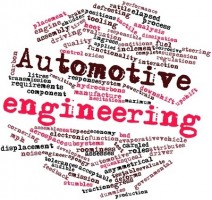Automotive engineering trends come and go and it is really important to be aware of what is happening in the industry. The truth is that a huge part of the industry at the moment is focused on improving the fuel economy and efficiency of the engine. This does include direct fuel injection, boosting, down-speeding and downsizing. Adding as much technology in the car as WiFi for people to play Sportito fantasy football or make calls on Skype is also important. However, adding as much as possible to the engine and improving efficiency is what is much more important than what most think. With this in mind, if you are interested in automotive engineering, the main emerging trends you have to be aware of are the following:
Battery Systems
New battery management systems are being created in order to meet life, warranty and performance goals for monitoring systems, management systems and batteries. The automakers know that varying the operational limits will affect battery system life through modelling and testing, then developing algorithms that can predict and track different parameters.
Reducing costs and expanding the operating range of the batteries is possible thanks to research, all based on testing and designing new subsystems and battery chemistries. Advanced chemistries are going to allow the battery to operate at a higher temperature, last for a longer period of time and even reduce costs and weight.
Turbocharging And Downsizing
Downsizing the internal combustion engine will bring in mechanical and thermodynamic benefits. Engines will operate at a higher load and engine efficiency is going to be a lot higher. Friction reduction at piston points and cylinder number reduction stand out as the main mechanical benefits.
A downsized engine is going to be lighter than the regular engine so entire vehicle mass is reduced while fuel consumption is improved. Through turbocharging we have a higher inducted charge so the important power-to-displacement ratio is more effective.
Advanced Modes For Combustion
Internal combustion engine efficiency is very important at the moment for automotive engineers. We are faced with various combustion modes that have been developed, including the highly popular HCCI (homogeneous charge compression ignition).
We also see research done about how to recover energy normally dissipated through exhaust and coolant systems with automotive powertrains. Heat recovery systems are investigated, creating the possibility to turn thermal energy into electrical or mechanical energy. That will increase vehicle efficiency. Increasing that efficiency is now possible through turbocompounding, recuperative thermal management systems, thermoelectric systems and Organic Rankine cycle.
Fuel efficiency research is also connected with what we know as intelligent energy management. This is an ability to intelligently control the different accessory loads we have in a vehicle, like power steering and alternator. If the control is smarter and we add stop-start tech to the mix, fuel economy will be much higher without having to increase the vehicle costs. This is definitely something that is really important since it meets with the demands of both the weekend drivers and those that drive every single day.





Leave a Reply